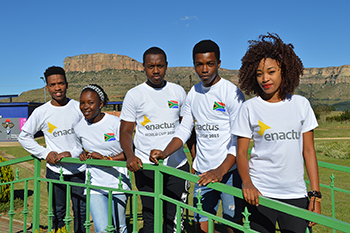Latest News Archive
Please select Category, Year, and then Month to display items
31 January 2024
|
Story EDZANI NEPHALELA
|
Photo ANJA AUCAMP
 Dr Martin Laubscher’s thesis, crowned with the Andrew Murray-Desmond Tutu Prize, is testament to the university’s unwavering commitment to scholarly excellence.
Dr Martin Laubscher’s thesis, crowned with the Andrew Murray-Desmond Tutu Prize, is testament to the university’s unwavering commitment to scholarly excellence.
In a historic triumph that reverberates over four decades since its inception, the UFS has clinched the coveted
Andrew Murray Prize – now renamed the Andrew Murray-Desmond Tutu Prize – for the first time. Standing shoulder to shoulder with institutions such as the University of Pretoria (UP) and Stellenbosch University (SU), this achievement marks a significant milestone in the UFS’ journey.
At the heart of this accomplishment lies the profound contribution of
Dr Martin Laubscher, distinguished Senior Lecturer specialising in Practical and Missional Theology in the
Faculty of Theology and Religion. Dr Laubscher’s dedication and scholarly prowess culminated in the groundbreaking work titled
Publieke teologie as profetiese teologie? (Public theology as prophetic theology), a revised edition of his doctoral thesis, which was originally crafted at Stellenbosch University in 2020, with a focus on the eminent Karl Barth.
Dr Laubscher received the Andrew Murray Prize for Theological Books in Afrikaans for his research and insightful analysis. The journey started when he realised, under the guidance of his study leader,
Prof Dion Forster, that his script had the potential to be published in Afrikaans. Sun Media’s interest in publishing this work in Afrikaans, led to it being the first-ever published thesis in Afrikaans. Dr Laubscher recalls, “I was grateful and excited about Sun Media’s interest. The book emerged within a year, and during a celebratory launch Prof Forster suggested I submit it for the Andrew Murray Prize.”
Earlier this year, Dr Laubscher was excited to learn that he was being shortlisted for the prestigious award. Reflecting on the significant moment, he shares, “The elation I felt upon receiving the news was unparalleled. I was not only celebrating a personal triumph, but also etching my name as the first laureate from our faculty to secure this prestigious accolade.”
Enactus heeds call to be of service to its communities
2017-01-17

The newly-elected vice president of Enactus
University of the Free State, Solomuzi Khati
(third from left) with members of Enactus on
the Qwaqwa Campus.
Photo: Thabo Kessah
The future of South Africa is in good hands if Enactus activities are anything to go by. Enactus is an international non-profit organisation bringing together student, academic and business leaders committed to using entrepreneurial action to improve lives. And the Qwaqwa Campus chapter is doing exactly that – changing lives.
Community engagement
This team of enthusiastic and energetic students have touched the Qwaqwa community in more ways than one through their community engagement activities. One such activity was when they adopted the Team Spirit Centre as their partner for development and empowerment.
“Up to now, the chapter has lived up to its purpose of assisting and uplifting the Qwaqwa community. As part of our programme, we identified a problem that we are currently helping to solve,” said Solomuzi Khati, the newly-elected vice president of Enactus University of the Free State.
Skills development
“We have realised that many centres housing orphaned and vulnerable children, like the Team Spirit in Makoane in Qwaqwa, are not sustainable. Our project introduced a business concept to the centre where we helped to plant vegetables so the owner Mrs Manthabeleng could then use and sell at a later stage,” he said. “In the process, students and Mrs Manthabeleng would develop various entrepreneurial, finance and business skills for future use on top of the centre generating income to sustain itself,” he added.
Appointment of Advisory Board
Khati also revealed Enactus was in the process of inviting business and community leaders into their Business Advisory Board. “This is a group of business people who are recruited to serve as mentors for our team. Typically, a Business Advisory Board is composed of 10-50 business leaders in the community. Board members can keep students informed of current business concerns and trends, provide financial or in-kind assistance for projects, critique annual reports and presentations, and provide networking opportunities.”